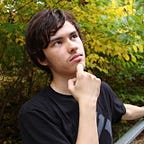My Cornell Engineering Application Supplement
Prompt: Tell us about an engineering idea you have, or about your interest in engineering. Describe how your ideas and interests may be realized by and linked to specific resources within the College of Engineering. Finally, explain what a Cornell Engineering education will enable you to accomplish. (Please limit your response to 650 words.)
My mission as a computer scientist and engineer is to improve the world by creating innovative technology. Right now, I am interested in using artificial intelligence to help humans make informed, rational decisions as they search for solutions to pressing social issues. I am preparing to design hardware and software to meet society’s burgeoning energy demands while protecting the environment. The Cornell College of Engineering’s interdisciplinary approach to academics will allow me to explore connections between fields of STEM and the humanities so that I can solve these problems creatively and thoughtfully.
Majoring in computer science within the College of Engineering will expose me to subfields such as artificial intelligence, network science, and graphics. The artificial intelligence vector will enable me to explore how AI can be used to reason about data from the outside world and identify possible root causes and solutions to social issues. For example, an AI program could devise solutions to the Syrian refugee crisis and estimate the costs, risks, and lives saved by each plan. The class “Mathematical Programming” will teach me about methods to optimize systems of linear equations, which will be valuable for designing the algorithm. In addition, I want to do research in machine learning and GPU programming. Machine learning has become ubiquitous, but because it is often used with large datasets, engineers must address its unavoidable computational intensity and electricity costs. Graphics processing units (GPUs) address this conundrum. Originally designed to improve the speed and energy efficiency of graphics computations, GPUs are being co-opted for mathematical applications in physics, finance, and medicine. I want to learn how to port AI algorithms to GPUs and thus minimize their energy usage.
The Common Curriculum will allow me to pursue my interests in mathematics, science, engineering, and the humanities. I want to build an air pollution scrubber, a concept that I devised in sophomore year. This device combines two methods of controlling atmospheric pollution, carbon sequestration and catalytic conversion, into a source of electricity. To identify the best materials — the ones that most effectively catalyze the breakdown of pollutants and convert the energy output to electricity — I will take classes in materials science, organic and acid-base chemistry, and genetic algorithms (AI). Classes in chemical engineering will help me develop an inexpensive way of producing biochar, the form of charcoal that is added to soil as a fertilizer and carbon sink (instead of being burned, the carbon is locked away inside the biochar, so it does not reenter the atmosphere). Finally, taking electrical engineering classes will allow me to use my knowledge of math and physics to develop novel materials for electronics or devices for generating renewable energy.
The Common Curriculum’s liberal studies courses will enable me to contextualize my work in engineering by studying history, culture, economics, and politics. The class “Law, Science, and Sustainability” will show me where environmental regulations fall short and how I can make up for that as an entrepreneur in the private sector. And the class “Comparative Urbanization” will help me understand the relationship between technology, people, and the economy in cities.
Cornell’s engineering program will provide me with a rich foundation in STEM and the humanities that will inspire innovation. Whether I am developing a new AI algorithm or promoting biochar in Brazil, my greatest loyalty as a computer scientist and engineer is to humanity.
Copyright © 2015 by Aidan Fitzgerald. All rights reserved.
